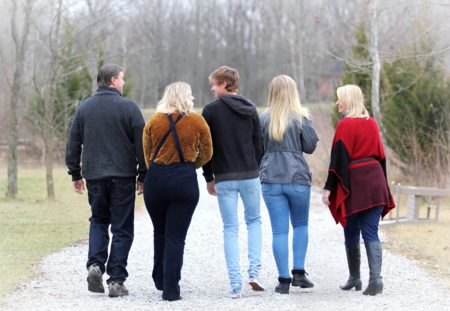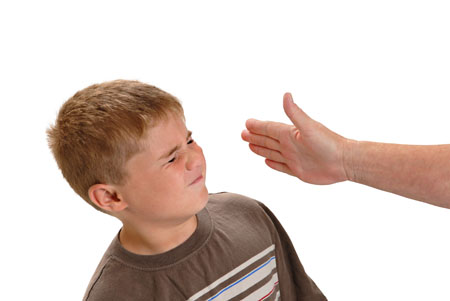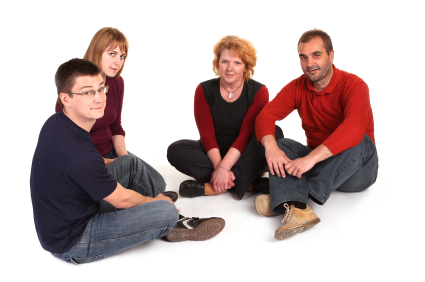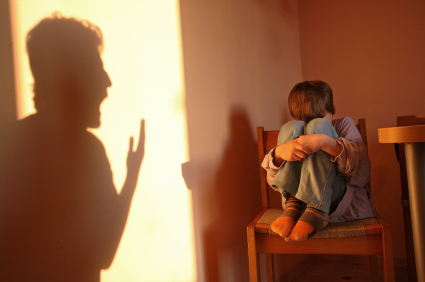Treating Symptoms of Bipolar Disorder in Children at Risk
At the 2019 meeting of the American Academy of Child and Adolescent Psychiatry, one symposium was devoted to new research on predicting onset of bipolar disorder in children who have a family history of the disorder. Below are some of the findings that were reported. See previous articles for more on this symposium.
Sub-Threshold Bipolar Disorder or BP-NOS is Impairing and Requires Treatment
In research Danella M. Hafeman’s research, children with BP-NOS were almost as ill as those with bipolar I disorder (BP I) and experienced equal incidence of suicide attempts, substance abuse, other simultaneous psychiatric diagnoses, and functional impairment, clearly indicating that they were in need of treatment. About 50–65% of participants with a family history of bipolar disorder converted from diagnoses of BP-NOS to BP I, while those with BP-NOS and no family history of bipolar disorder converted to BP I at rates of about 30–48%.
Several presenters presented data showing that those with sub-threshold bipolar disorder had severe functional impairment, a high incidence of suicide attempts, and additional diagnoses including ADHD, conduct disorder, anxiety, and substance abuse.
Diagnostic Tool Can Help Identify Children with Bipolar Disorder
Researcher Amy Yule indicated that a tool called the Child Behavior Checklist (CBCL) is effective for making the diagnosis of conduct disorder in children with bipolar disorder, while researcher Joseph Biederman showed that the CBCL can also identify children with bipolar I disorder and is faster and simpler to use in clinical practice than are full structured diagnostic interviews.
Researcher Janet Wozniak found that there was a high incidence of bipolar disorder in first-degree relatives of children with sub-threshold bipolar disorder, suggesting the validity of identifying youth with sub-threshold bipolar symptoms.
As discussed above, there is also a high incidence of children with BP-NOS progressing to a full diagnosis of bipolar I or II disorder (as many as 50% of those with a family history of bipolar disorder). However, the point is not to wait for the negative effects of a full diagnosis before beginning treatment: BP-NOS itself requires treatment.
Discussion and Emerging Consensus on Treatment, Particularly of BP-NOS
Experts in the field agree that family focused therapy (FFT) or its equivalent is a crucial first step to treatment of depression, cyclothymia (cycling between depressive and hypomanic symptoms that do not meet the threshold for a diagnosis of bipolar disorder), and BP-NOS in children who are at high risk of bipolar disorder because they have a parent with the disorder.
A second area of agreement is that young people with BP-NOS should have a positive therapeutic coach (which could be a treating physician if no other person is available), who can emphasize important early steps that can improve short- and long-term health. These include maintaining a healthy diet, exercise (such as participation in school sports), the practice of mindfulness and/or meditation, and playing and practicing a musical instrument. Parental support is also critical to decreasing negative expressed emotion.
Early interventions and wellness programs that focus on these factors are part of the successful Vermont Family Based Approach, led by psychiatrist Jim Hudziak, Director of the Vermont Center for Children, Youth, and Families. Since programs like these are not widely available, treating physicians must create their own teams to provide such encouragement, and teach families how to find or establish such a support network.
School teachers should be engaged in support of the treatment of a child with bipolar disorder. Teachers should pay special attention to behavioral symptoms of an ill child. It also may be important for physicians to connect directly with teachers to ensure that children recovering from an episode of bipolar disorder receive extra time for assignments, a decreased academic burden, and other support. Researcher Manon H. Hillegers indicated that intervention by a physician will likely be listened to and believed, while parental requests alone to teachers or to the school may go ignored.
Hillegers, like researcher Lakshmi Yatham and colleagues, have found that it takes a year after a first manic episode for a child’s cognition to return to normal, so that special allowances should be made for such students even many months after they have recovered from their mania.
Family Focused Therapy Effective in Youth at Risk for Bipolar Disorder Who Have Early Symptoms
 Researcher David Miklowitz developed Family Focused Therapy (FFT), in which families of young people at risk for bipolar disorder take part in therapy, learning about the illness and practicing strategies for communication and coping.
Researcher David Miklowitz developed Family Focused Therapy (FFT), in which families of young people at risk for bipolar disorder take part in therapy, learning about the illness and practicing strategies for communication and coping.
At a symposium at the 2019 meeting of the American Academy of Child and Adolescent Psychiatry, Miklowitz reported findings from recent studies of youth who were at high risk for bipolar disorder because of a family history of the illness and the presence of early symptoms such as depression or cyclothymia or bipolar not otherwise specified (BP-NOS). Family focused therapy reduced symptoms. It also slowed onset of a first episode of mania and slowed the conversion to a diagnosis of bipolar I or bipolar II. These results converge with a total of 10 other positive studies of family focused therapy in different populations in children and adults. FFT or its equivalent should be made available to all symptomatic children who are at risk for bipolar disorder because of a family history of the disorder.
American Academy of Pediatrics Recommends Parents Avoid Spanking and Verbal Abuse
The American Academy of Pediatrics (AAP) has issued a policy statement calling for an end to corporal punishment, including spanking. These forms of punishment are tied to negative outcomes in every developmental area.
Children spanked regularly at age 3 had increased aggression risk by age 5. They also had more negative behaviors and lower vocabulary scores at age 9. Abusive behavior raises stress hormones and is associated with mental health struggles.
Verbal abuse should also be avoided. Verbal abuse includes punishment that shames, humiliates, threatens, frightens, or ridicules a child. Use of time outs, removal of privileges, and other forms of quiet discipline are recommended alternatives.
Editor’s Note: In our research network, the Bipolar Collaborative Network, we found that verbal abuse by itself (without the physical or sexual abuse that often accompany it) is associated with an earlier age of onset of bipolar disorder and a more difficult course of illness.
Family focused therapy (FFT) and other forms of family therapy are highly recommended for children of a parent with bipolar illness. These children are at high risk for a variety of psychiatric diagnoses, and those already experiencing depression, cyclothymia (mood swings between high and low) or a diagnosis of bipolar disorder not otherwise specified (BP-NOS) are much improved with FFT compared to treatment as usual. FFT teaches family members to recognize symptoms of illness for what they are rather than interpreting them as deliberate hostility, increases family communication and problem solving, and leads to good long-term outcomes.
Therapy Reduces Relapses, Promotes Medication Adherence
A 2017 meta-analysis published in the British Journal of Psychiatry indicates that psychosocial interventions were linked to reduced relapse rates, better adherence to medication, and other benefits in people with bipolar disorder. The meta-analysis by researcher Mary Lou Chatterton and colleagues evaluated data from 41 studies with a total of 3,119 participants. The studies examined psychosocial interventions such as cognitive-behavioral therapy, psychoeducation, and family-focused therapy compared to treatment as usual.
Chatterton and colleagues found that interventions that targeted family members who act as caregivers reduced manic and depressive relapse rates. Combined psychoeducation and cognitive-behavioral therapy was more successful than any other intervention, and had a large effect in reducing symptoms of mania. This combination also improved general functioning. Psychoeducation alone and in combination with cognitive behavioral therapy reduced medication non-adherence. Unfortunately, no intervention reduced depressive symptoms.
Several Types of Psychotherapy Effective in Childhood Bipolar Disorder
Childhood onset bipolar disorder can be highly impairing. Treatment usually includes medication, but several types of psychotherapy have also been found to be superior to treatment as usual. These include family focused therapy, dialectical behavior therapy and multifamily psychoeducation groups, including Rainbow therapy.
Family focused therapy, developed by David Miklowitz, consists of psychoeducation about bipolar disorder and the importance of maintaining a stable medication routine. Families are taught to recognize early symptoms of manic and depressive episodes, and how to cope with them. Families also learn communication and problem solving skills that can prevent stressful interactions.
Dialectical behavior therapy was developed by Marsha Linehan, initially for the treatment of borderline personality disorder. It can be useful in bipolar disorder because participants learn how to manage stressors that might otherwise trigger depression or mania. DBT teaches five skills: mindfulness, distress tolerance, emotion regulation, interpersonal effectiveness, and self management.
Multifamily psychoeducation was developed by Mary Fristad. In groups, children and parents learn about mood disorders, including how to manage symptoms, and also work on communication, problem solving, emotion regulation, and decreasing family tension.
Rainbow therapy is a type of multifamily approach also known as child and family-focused cognitive-behavioral therapy (CFF CBT). It integrates individual cognitive-behavioral therapy with family psychoeducation and mindfulness skills training. In a recent article in the journal Evidence Based Mental Health, Miklowitz reviewed the current research on Rainbow therapy. While the research to date has many limitations, he highlighted some benefits of Rainbow therapy: its flexibility, and its focus on treating parents’ symptoms along with children’s illness.
Traditional Antidepressants Are Not Effective in Bipolar Depression
 Bipolar illness affects 4.5% of the US population. According to researcher Kathleen Merikangas, 1.0% have bipolar I disorder, 1.1% have bipolar II disorder, and the remainder have subthreshold symptoms. Mark Frye, Chairman of the Department of Psychiatry at the Mayo Clinic, gave a lecture on antidepressants in bipolar illness at the 2014 meeting of the American Psychiatric Association.
Bipolar illness affects 4.5% of the US population. According to researcher Kathleen Merikangas, 1.0% have bipolar I disorder, 1.1% have bipolar II disorder, and the remainder have subthreshold symptoms. Mark Frye, Chairman of the Department of Psychiatry at the Mayo Clinic, gave a lecture on antidepressants in bipolar illness at the 2014 meeting of the American Psychiatric Association.
The newest data from meta-analyses indicate that traditional antidepressants that are effective in unipolar depression are not effective in bipolar depression. Some patient groups, especially those with very early onset depression and mixed depression, are at increased risk of switching into mania and making a suicide attempt while taking antidepressants.
Unipolar depressed patients with a genetic variation that produces a short form of the serotonin transporter (5HT-LPRs/s) are at increased risk for depression in adulthood following a history of childhood adversity, and tend to respond less well to antidepressants. Frye found that 5HT-LPRs/s is weakly associated with switching into mania when antidepressants are given to patients with bipolar depression.
At the same symposium, researcher Mike Gitlin reviewed data on combination therapy, which is rapidly becoming the norm, indicating that in most circumstances, it is superior to monotherapy.
Researcher David Miklowitz reviewed the impressive data on the superiority of most forms of targeted psychotherapy or psychoeducation compared to treatment as usual for bipolar depression. He noted his own finding that Family Focused Therapy (FFT) not only is effective in adolescents and adults with bipolar disorder, but also in reducing illness and dysfunction in those with prodromal disorders (such as depression, cyclothymia, and bipolar not otherwise specified) in situations where there is a family history of bipolar disorder.
Eight components of FFT are:
- Recognition of prodromal symptoms and development of treatment strategies for them.
- Recognition and management of stress and triggers using cognitive restructuring.
- Development of a relapse prevention plan and rehearsal of what to do.
- Regularization of sleep.
- Encouragement of treatment adherence with an eye to a good future.
- Enhancement of emotional self-regulation skills, including cognitive restructuring.
- Improvement of family relationships and communication.
- Education about substance abuse avoidance and treatment for that and other comorbidities.
Many of these are also key components of group psychoeducation, cognitive-behavioral therapy, and interpersonal and social rhythms therapy, and all of these are effective in treating and preventing bipolar depression compared to treatment as usual. It is noteworthy that in the research of Francesc Colom, 90% of patients randomized to treatment as usual relapsed within 24 months, while psychoeducation was highly effective in preventing relapses over the next five years.
This editor (Robert M. Post), the discussant for the symposium, emphasized that the main take-away messages of the speakers were: use more lithium, use more caution and fewer antidepressants in treating bipolar depression, use more combination therapy for acute illness and for maintenance, and definitely use more psychotherapy. Read more
Family Focused Therapy
Family focused therapy (FFT), developed by David Miklowitz, a professor of psychiatry at the University of California, Los Angeles, has been effective in treating early syndromes that sometimes lead to bipolar disorder (including depression, anxiety, or BP-NOS) in children at high risk for bipolar disorder because of a family history that includes bipolar disorder in a first degree relative. There are 8 key ingredients to family focused therapy.
- Consistent monitoring of the illness and developing an early warning system with a plan for responding if early symptoms emerge
- Stress management
- Development of a relapse prevention plan
- Emphasis on sleep hygiene and the importance of regular sleep patterns
- Work on medication adherence
- Development of self-regulatory skills
- Improvement of family relationships
- Avoidance of substances of abuse
U.S. Patients with Bipolar Disorder Have More Stressors in Childhood and Prior to Illness Onset
In research published since 2008, our Editor-in-Chief Robert M. Post and colleagues in the Bipolar Collaborative Network have compared patients with bipolar disorder in the United States to those in Germany and the Netherlands. Compared to the European sample, patients in the US have more genetic vulnerability to bipolar disorder (by having a parent with bipolar disorder), earlier onsets of their illness, more complicated courses of illness, greater treatment resistance, and more medical comorbidities. Patients in the US also have more psychosocial stress.
The researchers are now turning their attention to these psychosocial vulnerabilities, and in a new paper that will be published in Psychiatry Research (late in 2013 or early in 2014), the authors show that patients in the US had more stressors both in childhood and just prior to the onset of their illness. Childhood stressors analyzed in the study were verbal abuse, physical abuse, and sexual abuse. Stressors in adulthood included indicators of a lack of social support, troubles with finances or employment, lack of access to health care, and medical comorbidities.
The stressors patients experienced just prior to their most recent episode of bipolar illness were related to: stressors in childhood, an earlier age of illness onset, anxiety and substance abuse comorbidity, lower income, both parents having an affective illness such as depression, and feeling more stigma.
The new research suggests that for patients with bipolar disorder in the US, adverse life events in childhood and later in life are more prevalent than they are for patients in the Netherlands or Germany. Earlier and more effective approaches to these stressors, such as the Family-Focused Therapy developed by David Miklowitz and Kiki Chang, could potentially slow the onset or progression of bipolar illness in this country.
Family Environment, Cognitive Functioning, and Quality of Life Among Depressed Adolescents with Bipolar Disorder
At the 2012 meeting of the American Academy of Child and Adolescent Psychiatry, Arman Danielyan presented a poster on psychosocial, cognitive, and behavioral characteristics of youth in a depressive phase of bipolar disorder. These adolescents had lower scores on a variety of measures.
Adolescents with bipolar depression had significantly lower scores on 7 of 10 family environment scales measuring the quality of family interaction, communication, and emotional tone. They also exhibited significant impairment in cognitive function, particularly executive functioning, and all domains of psychosocial health were substantially lower than US normative data.
The authors concluded that bipolar depression affects multiple domains of adolescents’ lives including their cognitive, psychosocial, and family functioning. This suggests that the involvement of the whole family in the treatment process would be beneficial.
The impaired cognitive functioning these young people face is associated with lower quality of life, and ways of addressing this better are clearly needed.
Editor’s Note: In a previous BNN we reported on the efficacy of Family Focused Therapy (FFT), which was pioneered by David Miklowitz. This therapy is effective for adolescents and adults with bipolar disorder and for adolescents who are at high risk for the disorder because of two factors: having a parent with the disorder and having preliminary symptoms of bipolar disorder not otherwise specified (BP-NOS), depression, or an anxiety disorder. Kiki Chang, a respected authority on child and adolescent psychiatry, recommends FFT for children and adolescents with bipolar disorder and those at high risk for it.








